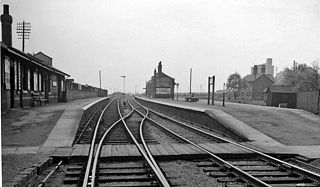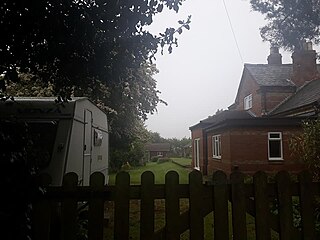Related Research Articles

Bardney is a village and civil parish in the West Lindsey district of Lincolnshire, England. The population of the civil parish was 1,643 at the 2001 census increasing to 1,848 at the 2011 census. The village sits on the east bank of the River Witham and 9 miles (14 km) east of Lincoln.

Tupholme is a village in the East Lindsey district of Lincolnshire, England. It is situated 11 miles (18 km) east from Lincoln, and is the site of the ruined Tupholme Abbey on the road between Horncastle and Bardney. The population is included in the civil parish of Bucknall.
Thomas Ruthall was an English churchman, administrator and diplomat. He was a leading councillor of Henry VIII of England.

Sir John Mason was an English diplomat and spy.
William Barons was the Bishop of London from 1504 to 1505. He was also Master of the Rolls of the Court of Chancery from 1502 to 1504.

Partney is a small village and civil parish in the East Lindsey district of Lincolnshire, England. It is situated 3 miles (4.8 km) north of Spilsby, and in the Lincolnshire Wolds. The village was the birthplace of Henry Stubbe, the noted 17th-century Intellectual.
No. 189 Squadron was a Royal Air Force squadron.

Bardney Abbey in Lincolnshire, England, was a Benedictine monastery founded in 697 by King Æthelred of Mercia, who was to become the first abbot. The monastery was supposedly destroyed during a Danish raid in 869. In 1087, the site was refounded as a priory, by Gilbert de Gant, Earl of Lincoln, and it regained status as an abbey in 1115.

Royal Air Force Bardney or RAF Bardney is a former Royal Air Force station located 2 miles (3.2 km) north of Bardney, Lincolnshire, England and 10 miles (16 km) east of Lincoln. It was built as a satellite to RAF Waddington in 1943 and the airfield closed in 1963.

Skendleby is a small village and civil parish in the East Lindsey district of Lincolnshire, England. It is situated near to the A158 and lies 35 miles (56 km) east from the county town Lincoln, and about 4 miles (6 km) north-east from the town of Spilsby. The village stands near the south-eastern edge of the Lincolnshire Wolds.

La Bazoge is a commune in the Sarthe department in the region of Pays de la Loire in north-western France. It is twinned with the village of Bardney in Lincolnshire and Martfeld (Deutschland).

Bardney railway station was a station in Bardney, Lincolnshire. North of the station the line split in two with one branch going to Lincoln and the other to Louth.
Kingthorpe railway station was a railway station that served the village of Kingthorpe, Lincolnshire, England between 1874 and 1956, on the Louth to Bardney line.

Wragby railway station was a railway station that served the town of Wragby, Lincolnshire, England between 1874 and 1960, on the Louth to Bardney line.

East Barkwith railway station was a railway station that served the village of East Barkwith, Lincolnshire, England between 1874 and 1958, on the Louth to Bardney line.

South Willingham and Hainton railway station was a railway station that served the village of South Willingham, Lincolnshire, England between 1874 and 1958, on the Louth to Bardney line.

Hallington railway station was a station in Hallington, Lincolnshire.

The Louth to Bardney Line was an English railway line built by the Louth and Lincoln Railway Company, in Lincolnshire, England. It opened in stages between 1874 and 1876, after serious difficulties in raising subscription capital, and following alteration to the planned route. It was hoped to serve large reserves of ironstone along its route, but the deposits were not as large as hoped, and the line was never financially successful.

Southrey is a village in the civil parish of Bardney in the West Lindsey district of Lincolnshire, England, and approximately 2 miles south-east from Bardney.
Thomas Wallensis was a Welsh Franciscan, archdeacon of Lincoln and then bishop of St. David's.
References
![]() This article incorporates text from a publication now in the public domain : "Bardney, Richard of". Dictionary of National Biography . London: Smith, Elder & Co. 1885–1900.
This article incorporates text from a publication now in the public domain : "Bardney, Richard of". Dictionary of National Biography . London: Smith, Elder & Co. 1885–1900.